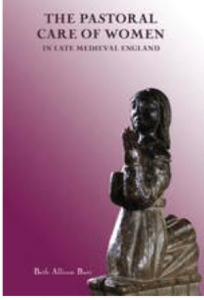 It had been a particularly bad day for me in academia.
It had been a particularly bad day for me in academia.
I was on the verge of submitting my recently published book for a major prize in my field when I stumbled across the book review. It was harsh, to say the least. Nerermind that it was the only really harsh review. Nevermind that the negative review appeared in a small journal with a small readership. Nevermind that one of the top journals in my field had called my argument “judicious” and important. Nevermind how well the book had done.
Now all I could see was the harsh words from that one person.
I remember just staring at my computer. All those feelings I had been trying since graduate school to keep suppressed–of self-doubt, fear, even shame–flared inside me. Their flames were only fanned further when I checked my email. With impeccable timing, the journal I had been waiting to hear from for months chose this day to reject my article.
It has finally happened, I thought. I knew I could never do this, and now everyone else knows it too.
I had a classic case of imposter syndrome–the feeling of being a fraud, of not belonging, of not being good enough to make it. I particularly like the way the Chronicle of Education describes it: “a twisted version of the Socratic paradox-the more you know, the more you feel like you know nothing.”
Sound familiar?
Unfortunately impostor syndrome is a very real problem among academics–including graduate students. It was first identified in 1978 by psychologists Pauline Clance and Suzanne Imes. They coined the term to “designate an internal experience of intellectual phonies, which appears to be particularly prevalent and intense among a select sample of high achieving women…Despite outstanding academic and professional accomplishments, women who experience the imposter phenomenon persists in believing that they are really not bright and have fooled anyone who thinks otherwise.” Despite previous success (such as getting accepted into graduate school) and even current accomplishments (like getting first author on a paper or presenting at a national conference), people suffering from impostor syndrome FEEL like they can’t cut it. They feel like maybe it is an accident they have succeeded at all….
Again, sound familiar?
Evidence suggests imposter syndrome might be more prevalent among women and minorities. As Clance and Imes originally wrote, women are predisposed to imposter syndrome because “success for women is contraindicated by societal expectations and their own internalized self-evaluations.” But it is still a problem for men. Indeed, a study published in 2018 suggests that men with imposter syndrome are more likely than women to crack under additional pressure: “men with higher imposter syndrome scores again showed increased anxiety, reduced effort and a tendency toward worse performance.” Men with imposter syndrome anticipate performing badly, so they perform badly, and their bad performance fuels their imposter syndrome even more.
Imposter syndrome is a reality for all of us–women and men alike. And it is very common in academia.
The Chronicle of Education has published several articles about the problem of imposter syndrome in academia. A recent article, published in 2018 and written by Sindhumathi Revuluri, suggests that imposter syndrome “runs thick in the veins of academics.” The very nature of our training as academics makes us always question the validity of what we do; it forces us to expose ourselves over and over to critical examiners who aren’t always kind with their words; it makes us face rejection on a regular basis. As Revuluri writes, imposter syndrome is “such a deep part of the ecosystem of the academy that it is hard to imagine faculty life without it.”
Yet, imposter syndrome paralyzes us.
It paralyzed me. I missed my chance to submit my first book for a prize because I became so paralyzed. Indeed, imposter syndrome almost derailed me. I became afraid to write for several months, and when I finally began publishing again, my voice was different. I hid behind academic jargon and convoluted sentences. I joke today about my “bad title phase.” Yes, it was my bad title phase (my high school journalism teacher would have cringed if she ever saw the convoluted titles of a few of my articles). But it was really my imposter syndrome phase. I was so afraid that I wasn’t good enough that I tried to hide behind the way I thought a real academic would write.
Lucky for me, I have learned to manage imposter syndrome. But it will probably never go away. As Jay Daniel Thompson writes, in another Chronicle article, “Academics are perfectionists. Nothing will ever be good enough for us–whether it’s the lecture we’ve just delivered or our grasp of 20th-century continental philosophy. Our perfectionist pangs are enhanced by the hypercompetitiveness of academe itself.” The academic world cultivates high-achieving people who are forced to face rejection and criticism on a daily basis. Is it any wonder many of us succumb to feeling like a fraud?
The first step in managing imposter syndrome is to recognize that it is real and that it can affect you. This week, the Counseling Center at Baylor University is holding a session just for graduate students on recognizing and overcoming imposter syndrome. It will be held across the lunch hour (12-1) in Moody Library Seminar Room #1 (third floor) on Wednesday, October 23. I think it will be well worth your time.
I still regret not submitting for that book prize. I let imposter syndrome paralyze me.
Don’t let it do the same to you.